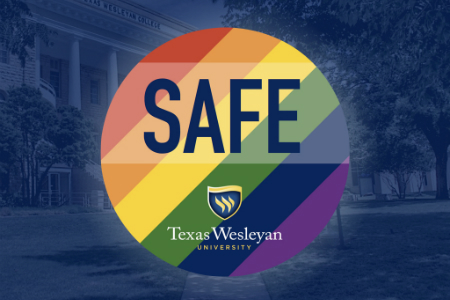Make campus more inclusive. Become an Ally Feb. 28

Here at TXWES, we’re constantly striving to make the campus a more inclusive place. That’s why Student Life is launching an Ally training program. The training sessions, which are open to the entire campus community, aim to create a welcoming environment, one that challenges oppression and builds a network of allies for LGBT students. Whether in the classroom or in the residence halls, being an ally can be simple yet effective and we can teach you how to better support your RAMily.
By providing 101-type information, and engaging in discussions and activities, the TXWES Ally Training program focuses on how participants can become allies. Supporting your RAMily in this way can impact your fellow students but showing respect and genuine care, no matter who they are.
The goal is to provide all students, specifically LGBT, with visible people in areas and offices throughout campus that they know they can talk to if they are experiencing harassment or just need some support.“I really think of allyship as ongoing,” said Chelsea Sepolio, the assistant director for student conduct and civility, “Part of it is recognizing when to step back and listen, but also when to step up and support someone actively.”
“By displaying the ‘Safe’ decal or by wearing the ‘Ally’ button is this idea that you have a haven, a reprieve, as a minoritized person,” David Monge, the coordinator for student organizations and Greek life said. “You can come to a place and feel like this is set up for you, this place is where you’ll find someone who understands you, someone who will listen.” “The Ally Training program is about fostering an attitude, a cultural shift and people who think about you in ways that are nuanced, in ways that respect who you are, that appreciate and nurture those identities,” Monge said. “Simply put, a safe space is about the people who are in the space.”
Student life will hold the first general Ally Training session during free period on Tuesday, Feb. 28 in the Carter Conference Room. Groups can also request specifically tailored training from Student Engagement based on that group’s need.







